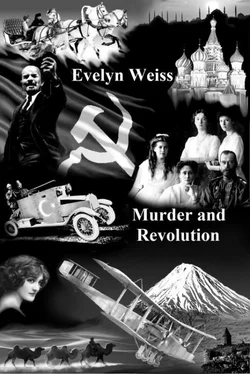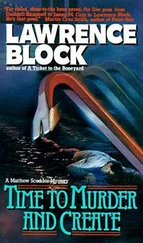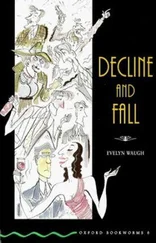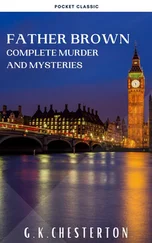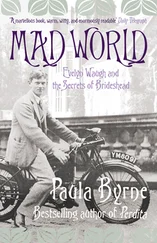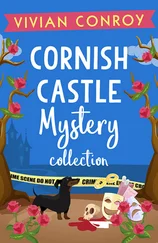“Miss Neale is here as my personal assistant, as is Mr Bukin.”
“I’m surprised.”
“As you will recall, Miss Frocester, at the end of your stay at the Yermak Estate, Miss Neale was called aside, in private. She was given a letter from me, which asked her to explain her actions. For example, you yourself witnessed her causing the death of a man called Horobets – a former sergeant of the Siberian Cossack Host, who I knew to be an unstable and treacherous man.
Miss Neale travelled to St Petersburg to meet me. She explained to me all her actions and motives during the events of 1917. Her explanations were entirely satisfactory – so much so that I appointed her to work for me.”
I stare at her. “Emily, is this true? You’re a supporter of the Bolsheviks? Of Lenin?”
“Yes I am, Agnes. I have realized that there is only one way forward for Russia, and Lenin is the architect of our destiny. I admit that I was confused, groping for answers, when the revolution first happened—”
“Emily, you were one of the people who made the revolution happen!”
“I was involved in some street protests in February 1917. But those demonstrations weren’t organized or authorized by the Bolshevik Party. So they weren’t the true revolution. Only when the Bolsheviks swept away the so-called Provisional Government at the Winter Palace was there a real revolution.”
“I can’t believe you’re saying this…”
“History proves, Agnes, that the revolution, the triumph of communism predicted by Marx, has come to fruition under Lenin’s leadership. It just took me a little time before I could see it that way. That was my own fault. Now, I’ve learned from my mistakes, and I’m here to help General Aristarkhov. He has an important mission here in Greece.”
Mr Bukin is standing by, waiting politely to shake my hand. “Miss Frocester! I am so grateful to you. I thank you with all my heart for the letter you wrote for me in Moscow, to the general. It took some time – but two weeks ago, he contacted me, saying he remembered my loyal and unquestioning service to him before the Revolution. He has now appointed me to be clerk of his new office in Moscow.”
“So why are you all here in Greece, Mr Bukin?”
“I don’t know. The general said it was important… Ah – Captain Sirko!”
Mr Bukin is thanking Yuri profusely for the money he gave him in Moscow. But I’m listening to another conversation. I overhear Aristarkhov talking to Lord Buttermere and the professor, both of whom reply to him, with one voice.
“That’s completely impossible! We cannot agree to your request.”
I look over at them. Lord Buttermere goes on. “We have no problem with Captain Sirko returning to Russia, if he wishes to. But as your prisoner, on a charge of murder!…”
I step over to them in a instant. “What on earth is going on?”
Aristarkhov looks at me. With an air of annoyance, he explains again.
“Our leader, Comrade Lenin, wants friendship between Russia and our near neighbour Sweden. He also wants to investigate and punish crime – even crimes that were committed before the Bolshevik government came to power. For both those reasons, I have come to arrest Captain Sirko, for the murder of Svea Håkansson in July 1916.”
I’m stunned. But Aristarkov continues. “Miss Frocester, I have already spoken to the captain of HMS Agamemnon, and to the senior British officials aboard the battleship. They are all rather busy today. They told me that if I needed to arrest a Russian citizen, for a crime that was committed in Russia, I should simply go ahead.”
I look at Aristarkhov, then at Bukin, then at Emily. My words come slowly.
“You want to investigate and punish crime, you say. So you need to find the murderer of Svea Håkansson. Captain Sirko is innocent. I can prove it, beyond any possible doubt.”
The General gives a short, low laugh. “How can you prove it?”
“Because I know who the real murderer is. And I have conclusive, irrefutable evidence.”
I look at the general, then at Emily, before carrying on. “The first piece of information I should share with you is one that you have both seen. It was there on the table inside a manilla file, General, when you interviewed me and Emily at the Winter Palace. It's a letter written by Prince Alexei, in the form of a diary.”
Emily looks at me. “Alexei’s letter doesn't say who killed Svea.”
“No. But it does go into very exact detail about something Alexei was given, while he was staying at Tri Tsarevny.”
Aristarkhov shrugs. “You mean the binoculars?”
“No. The books. Alexei was given books by his tutor, Nestor. One was the Time Machine. It’s a popular book of science fiction, written by the socialist H. G. Wells. It’s about a future world, in which human society has divided into two species: underground-dwelling workers and dreamy, idle aristocrats. Then there were two poems by Thomas Macauley, both about the struggles of the young Republic of Rome to defend itself against the claims of tyrant kings. The last book Alexei mentioned in his letter struck a particular chord with me, because the author was born in Litchfield and settled in Hartford – both in Connecticut, my home state. Uncle Tom's Cabin is one of my favorite books.”
Aristarkhov sneers. “This is hardly relevant – and rather tedious, Miss Frocester.” But I carry on.
“Can we conclude anything about the type of person who might give such books to an impressionable young boy? I could only guess, of course. But then I came across something more definite. Mr Bukin – you told me that Nestor is an Estonian surname.”
“Yes, it is.”
“And Professor, you thought that it might be a name from classical Greece. But when I was in Astrakhan, I met Yuri’s mother, Mrs Viktoriya Sirko. At her house I saw a newspaper clipping of a civic visit to Astrakhan from Boston, Massachusetts. As you may know, Boston is famous for its Irish population. One of the visitors was a Boston businessman named Patrick Casey Nestor.”
I look at Emily. “When the General sent you and I to Moscow, you told the American consulate that you'd lost your passport. But the truth is that you did still have your passport – but you didn't want to get it out in front of me, in case I saw the surname that was written in it. And today, you got the General Aristarkhov to introduce you as Emily Neale. But that’s a lie, isn’t it? Your name is actually Emily Nestor, of Irish descent, born in New Orleans. When I saw that newspaper article in Astrakhan, I realised, for the first time, that Nestor is an Irish surname.”
Emily says nothing.
“You have a brilliant academic record, Emily. You are one of the world’s most distinguished scholars of Russian literature. On that basis you secured a job as a private tutor to Alexei. I think his mother favored a female tutor for her delicate boy. And, the Tsarina’s extreme secretiveness meant that, although you were at Tri Tsarevny, you remained in the main Dacha every day. Only your name was known to you, General, and you, Mr Bukin. You never actually met Nestor, did you?”
The two Russians nod silently as I continue.
“But I think that one of you – probably you, General – had seen the distant figure of Tutor Nestor up at the main Dacha, from your own house down on the lake.”
“Good God! How did you know that?” Aristarkhov glares at me.
“Another of my guesses. What you saw – from a distance – was a black-haired, pale-skinned, thin woman, conservatively dressed in dark clothes. The weather was sunny, those few days at Tri Tsarevny in July 1916. In bright sunlight, you often don’t see people’s features. And if Emily was standing against the light, all you’d have seen was a silhouette, General. Look at me, now, against the sunlight—”
Читать дальше
